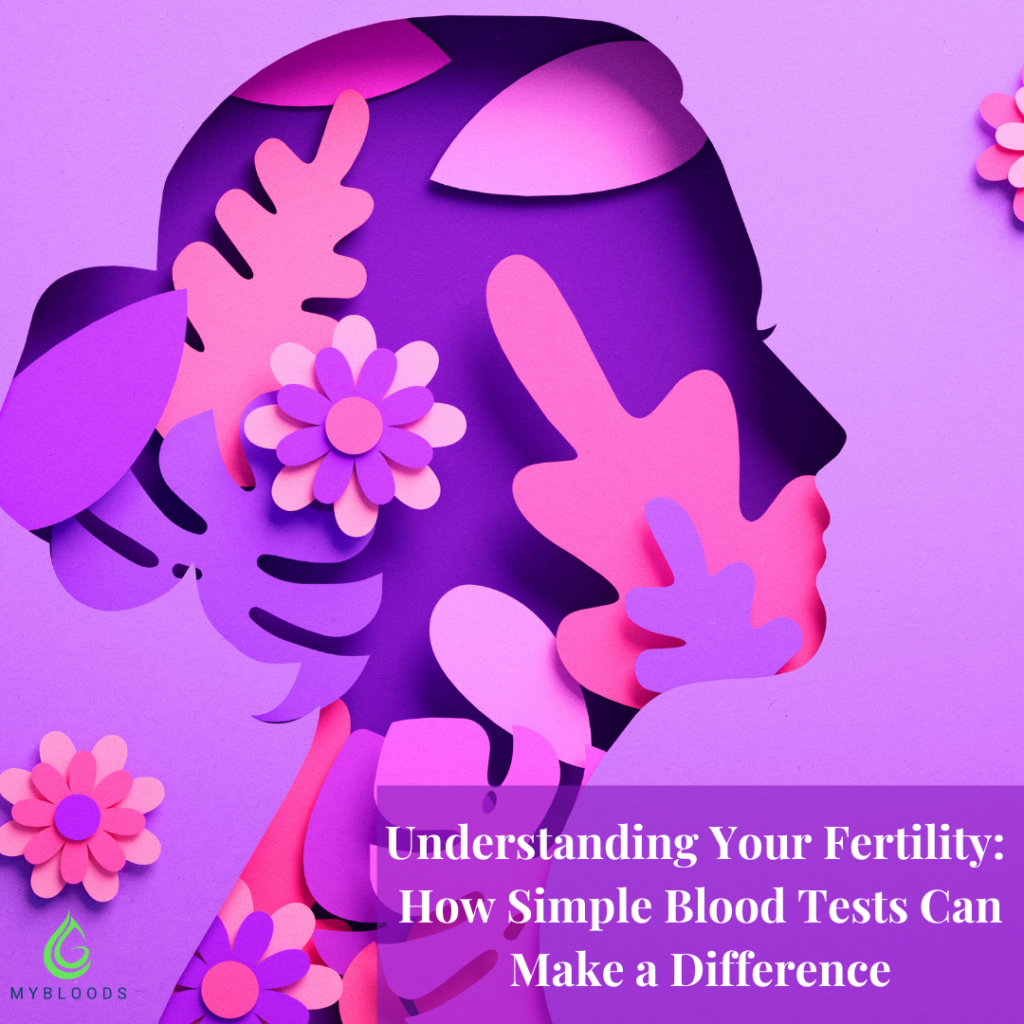
Understanding your body is key to maintaining good health, especially when it comes to fertility. In understanding your fertility simple blood tests can make a difference and play a crucial role in women’s health by providing valuable insights into hormonal balances, ovarian reserve, and overall reproductive well-being.
WHAT HAPPENS INSIDE THE WOMAN’S BODY?
Starting from knowing the anatomy and physiology of the female reproductive system is crucial for comprehending how various processes and pathologies can affect fertility and overall reproductive health .Key components include the ovaries, fallopian tubes, uterus, cervix, and vagina. The
ovaries are small, almond-shaped glands located on either side of the uterus. They produce eggs (ova) and hormones like estrogen and progesterone. Each month,during the menstrual cycle, an egg (or more in certain cases) matures within an ovarian follicle. Ovulation occurs when the follicle ruptures, releasing the egg into the adjacent fallopian tube. The fallopian tubes are narrow ducts connecting the ovaries to the uterus. They are the site of conception, where sperm meets the egg. Tiny hair-like structures called cilia line the tubes, helping to move the egg toward the uterus.
The uterus is a pear-shaped organ with thick muscular walls. Its inner lining, the endometrium, thickens in preparation for potential implantation of the egg. If conception does not occur, the endometrial lining sheds during menstruation. The cervix is the lower, narrow part of the uterus opening into the vagina. It serves as a passage for sperm to enter the uterus and for menstrual blood to exit. During childbirth, the cervix dilates to allow the baby to pass through.
Fertility blood tests.
Fertility tests help identify potential issues that might affect the reproductive system and your ability to conceive and carry a pregnancy to term. By regularly checking important hormones like FSH, LH, and AMH, you can get a clearer picture of your reproductive health. This proactive approach empowers you to make informed decisions about your fertility journey.
Fertility can be impacted by various pathologies such as Polycystic Ovary Syndrome(PCOS), endometriosis, and thyroid disorders: PCOS is characterized by irregular menstrual cycles and elevated androgen levels,often diagnosed through tests for testosterone, LH, and FSH.
Endometriosis, where tissue similar to the uterine lining grows outside the uterus,may be indicated by elevated CA-125 levels, which are also the levels that indicates some cell abnormalities in a womans reproductive organs .
Thyroid disorders, which can disrupt menstrual cycles and ovulation, are detected through TSH, Free T4, and Free T3 tests. These tests are essential in diagnosing underlying conditions, enabling targeted treatments to improve fertility outcomes.
Fertility Matters
Birth control pills are a reliable way to prevent unwanted pregnancies, giving you control over your reproductive health. They not only help in family planning but also offer benefits like regulating periods, reducing cramps, and improving acne, making them a good choice for many women’s health needs. Before starting birth control pills, certain blood tests may be recommended to ensure they are safe and suitablefor you. Regular monitoring can also be necessary while on these pills. These tests include:
Hormone Levels: Estrogen and Progesterone: To understand baseline hormone levels.
Thyroid Function Tests (TSH, Free T4, Free T3): Since thyroid issues can affect menstrual cycles and hormone metabolism.
Lipid Profile/ Cholesterol Levels: Birth control pills can affect lipid levels, so it’s important to monitor them, especially if there is a history of cardiovascular disease.
Liver Function Tests (LFTs): AST, ALT, ALP: Birth control pills are metabolized by the liver, and it’s crucial to ensure liver health.
Clotting Factors: Prothrombin Time (PT), Activated Partial Thromboplastin Time(aPTT): To assess the risk of blood clots, particularly for those with a family history of clotting disorders or personal risk factors.
Whether you are planning to start a family now or in the future, knowing your body better through fertility blood tests can guide you toward the best path for achieving goal of starting a family. Taking these steps not only helps in early detection and treatment but also brings peace of mind.
